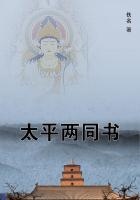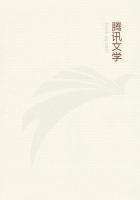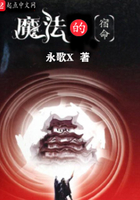Taken as a whole, this constitutes the Idea of Spinoza, and it is just what pure being was to the Eleatics (Vol. 1. pp. 244, 252). This Idea of Spinoza's we must allow to be in the main true and well-grounded; absolute substance is the truth, but it is not the whole truth; in order to be this it must also be thought of as in itself active and living, and by that very means it must determine itself as mind. But substance with Spinoza is only the universal and consequently the abstract determination of mind; it may undoubtedly be said that this thought is the foundation of all true views - not, however, as their absolutely fixed and permanent basis, but as the abstract unity which mind is in itself. It is therefore worthy of note that thought must begin by placing itself at the standpoint of Spinozism; to be a follower of Spinoza is the essential commencement of all Philosophy. For as we saw above (Vol. I. p. 144), when man begins to philosophize, the soul must commence by bathing in this ether of the One Substance, in which all that man has held as true has disappeared; this negation of all that is particular, to which every philosopher must have come, is the liberation of the mind and its absolute foundation. The difference between our standpoint and that of the Eleatic philosophy is only this, that through the agency of Christianity concrete individuality is in the modern world present throughout in spirit. But in spite of the infinite demands on the part of the concrete, substance with Spinoza is not yet determined as in itself concrete. As the concrete is thus not present in the content of substance, it is therefore to be found within reflecting thought alone, and it is only from the endless oppositions of this last that the required unity emerges. Of substance as such there is nothing more to be said; all that we can do is to speak of the different ways in which Philosophy has dealt with it, and the opposites which in it are abrogated. The difference depends on the nature of the opposites which are held to be abrogated in substance. Spinoza is far from having proved this unity as convincingly as was done by the ancients; but what constitutes the grandeur of Spinoza's manner of thought is that he is able to renounce all that is determinate and particular, and restrict himself to the One, giving heed to this alone.
1. Spinoza begins (Eth. P. I pp. 35, 36) with a series of definitions, from which we take the following.
a. Spinoza's first definition is of the Cause of itself. He says: “By that which is causa sui, its own cause, I understand that whose essence” (or Notion) “involves existence, or which cannot be conceived except as existent.” The unity of existence and universal thought is asserted from the very first, and this unity will ever be the question at issue. “The cause of itself” is a noteworthy expression, for while we picture to ourselves that the effect stands in opposition to the cause, the cause of itself is the cause which, while it operates and separates an “other,” at the same time produces only itself, and in the production therefore does away with this distinction. The establishing of itself as an other is loss or degeneration, and at the same time the negation of this loss; this is a purely speculative Notion, indeed a fundamental Notion in all speculation. The cause in which the cause is identical with the effect, is the infinite cause (infra, p. 263); if Spinoza had further developed what lies in causa sui, substance with him would not have been rigid and unworkable.
b. The second definition is that of the finite. “That thing is said to be finite in its kind which can be limited by another of the same nature.” For it comes then to an end, it is not there; what is there is something else. This something else must, however, be of a like nature; for those things which are to limit each other must, in order to be able to limit each other, touch each other, and consequently have a relation to each other, that is to say they must be of one nature, stand on a like basis, and have a common sphere. That is the affirmative side of the limit. “Thus a thought is” only “limited by another thought, a body by another body, but thoughts are not limited by bodies nor"conversely "bodies by thoughts.” We saw this (p. 244) with Descartes: thought is an independent;totality and so is extension, they have nothing to do with one another; they do not limit each other, each is included in itself.
c. The third definition is that of substance. “By substance I understand that which exists in itself and is conceived by itself, i.e. the conception of which does not require the aid of the conception of any other thing for its formation (a quo formari debeat);” otherwise it would be finite, accidental. What cannot have a conception formed of it without the aid of something else, is not independent, but is dependent upon that something else.
d. In the fourth place Spinoza defines attributes, which, as the moment coming, second to substance, belong to it. “By attribute I understand that which the mind perceives as constituting the essence of substance;” and to Spinoza this alone is true. This is an important determination; the attribute is undoubtedly a determinateness, but at the same time it remains a totality. Spinoza, like Descartes, accepts only two attributes, thought and extension. The understanding grasps them as the reality of substance, but the reality is not higher than the substance, for it is only reality in the view of the understanding, which falls outside substance. Each of the two ways of regarding substance - extension and thought - contains no doubt the whole content of substance, but only in one form, which the understanding brings with it; and for this very reason both sides are in themselves identical and infinite. This is the true completion; but where substance passes over into attribute is not stated.

